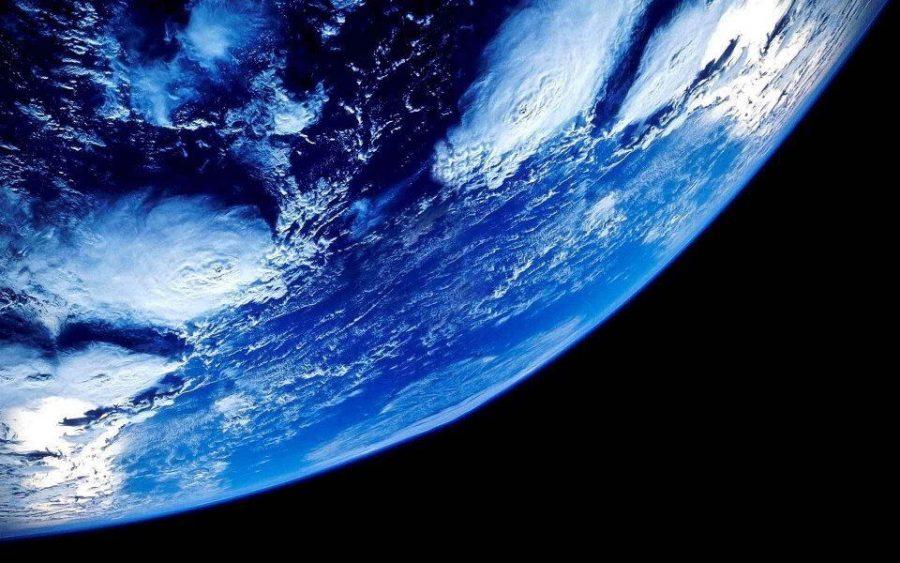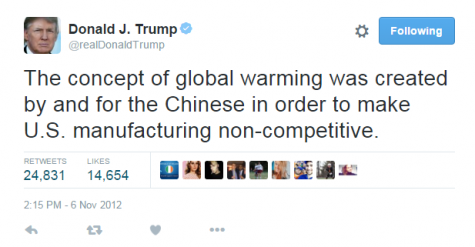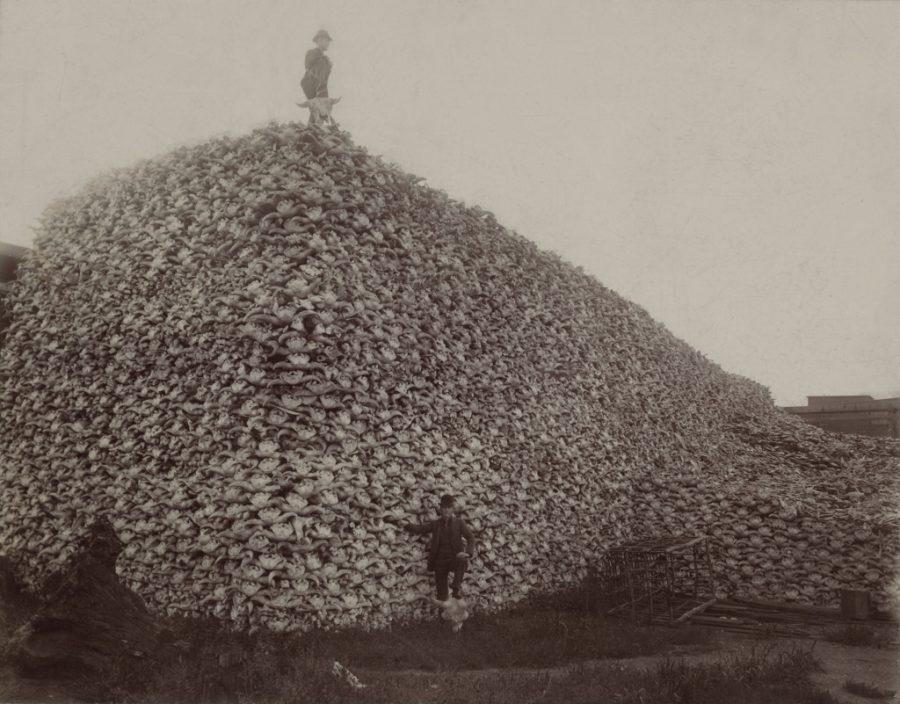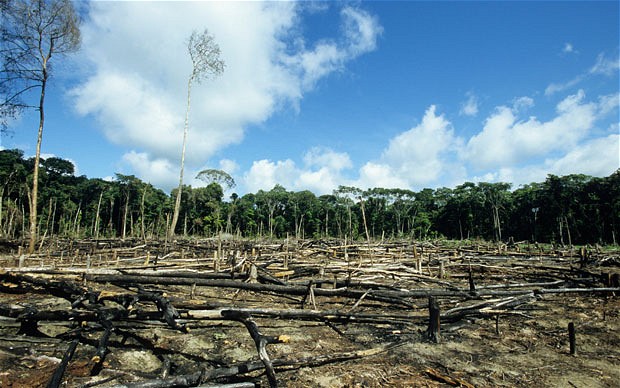
By, Meghan Serceki | Opinion Editor
January 31, 2017
During his first week in office, Trump upset many environmentalists by signing an executive order pushing the Dakota Access Pipeline through, removing any information on climate destabilization from the White House website, and taking the first steps to back out of the Paris Climate Agreement.
 Such actions by the president, however, are unsurprising. In 2012 Trump claimed, “the concept of climate change was created for and by the Chinese to make U.S. manufacturing non-competitive.”
Such actions by the president, however, are unsurprising. In 2012 Trump claimed, “the concept of climate change was created for and by the Chinese to make U.S. manufacturing non-competitive.”
Some natural alteration of the climate over time is perfectly normal–the Earth undergoes these cycles naturally. However, 97% of all scientists are more than 90% certain human activities are rapidly accelerating this change, and these facts cannot simply be ignored.
Mikayla Hartigan, a junior at San Clemente High School, asserts, “Awareness is key. The reason that most believe climate change is a ‘hoax’ is that research does not go beyond the first website found or even to another website. So many people believe exactly what they read on the internet, and it is essential for us to be aware of the information we are receiving and sending out. The environment is suffering from our actions and has been for over 700 years, and it is necessary to understand the repercussions of our actions and make change for the future.”
Earth existed long before humans did, and, although it underwent five mass extinctions, it thrived naturally and evolved into the world we know today. However, since the anthropocene, humans have detrimentally impacted the earth, changing its systems through activities such as deforestation, industrial processes, and excessive waste, creating unnatural problems never before experienced on this planet.
Prior to the 19th Century, human impact on the environment was relatively small, but still managed to affect the planet’s natural biomes. The world’s populations grew, industry and agriculture expanded, and countries increased their area. Europe began to thrive and farms grew more and more numerous, replacing forests with large fields for plowing and leaving the beaver population (among other animal species) there all but extinct since demand for their pelt was so high.
Their natural resources were growing scarce until the discovery of the New World, when an entire continent seemed untouched and ready to use. Fighting for monopolies and increasing commerce, European leaders began to do exactly what they had done in Europe–converting Earth’s natural systems into something that could gain them wealth, draining them of their natural abilities. They mined, farmed, and settled the new land, depleting the forests and the natural resources. Yes, such activities allowed the economic prosperity the United States sees today, but they also deprived Earth of much prosperity in the process.
As America expanded, these detrimental effects only grew more prevalent as settlers traveling West would shoot bison on the plains, the same plains that would soon be converted into agricultural land. This was especially detrimental to America’s grasslands as bison simply clip the grass, leaving the roots intact and actually helping them to grow by churning up the soil with their hooves as they feed. Cows–which they replaced bison with–on the other hand, instead harm the grasslands by grazing and tearing out the roots of the plants, causing them never to grow again, and by compacting the soil as they graze, basically destroying the biome. Expanding the agricultural industry and using more cows for meat and dairy products, they also increased our methane emissions as cows produce large amounts of methane every day. Simply by changing these important species, they altered the grassland biomes dramatically as we see them today becoming more desert-like and experiencing huge dust storms.
Such detrimental activities were only amplified by the advent of the Industrial Revolution across the globe. Humans, depleting natural resources, created factories and products, cut down forests, polluted the earth, and, ultimately paved the way to this sixth mass extinction.
As demand for cheap energy grew, humans began drilling the earth and using non-renewable energy sources. Not only do fossil fuels take years to accumulate and are therefore an extremely limited resource, but their emissions create huge problems for the environment. Since the Industrial Age began, humans have used them to power factories, cars, homes, and the like.
Burning fossil fuels creates an excess of carbon dioxide in our atmosphere and affect greenhouse gas concentrations. Having too few greenhouse gases makes the earth too cold to sustain life, and having too many makes it too hot. Adding more carbon dioxide and other gasses to the atmosphere by combusting fossil fuels, we trap too much of this heat inside and cause the earth’s temperatures to rise. In fact, just last year, people in the United States alone emitted approximately 1.925 billion tons of CO2.
The Paris Agreement works to limit these emissions, and Jackson Hinkle, a junior, believes, “If the agreements that we made in The Paris Agreement in December of 2015 are not upheld, it is more than likely that a number of other countries will follow in our footsteps and ditch any and all plans to minimize greenhouse gas emissions.”
In addition, humans alter Earth’s natural biomes, again intensifying the effects of our activities. As we cut down forests to make space for agricultural and industrial land, we alter weather patterns and thus the climate.
 Destroying tropical rainforests, we change the natural precipitation patterns and water and air currents immensely. By removing these trees, we lower rates of transpiration around the equator, lessening the amount of rainfall in the region and expanding mid-latitude deserts across the planet. Deserts reflect large amounts of sunlight which are then trapped in the atmosphere by our excessive amounts of harmful greenhouse gases, magnifying the effects of both. Beyond this, such alterations also cause ocean currents to change, stopping the regulation of temperatures between the equator and the poles.
Destroying tropical rainforests, we change the natural precipitation patterns and water and air currents immensely. By removing these trees, we lower rates of transpiration around the equator, lessening the amount of rainfall in the region and expanding mid-latitude deserts across the planet. Deserts reflect large amounts of sunlight which are then trapped in the atmosphere by our excessive amounts of harmful greenhouse gases, magnifying the effects of both. Beyond this, such alterations also cause ocean currents to change, stopping the regulation of temperatures between the equator and the poles.
Not only do these changes create more deserts, but they also change every other biome and–arguably most significantly–they cause the polar ice caps to melt in response to the rising temperatures created by the combination of all these factors, again increasing the effects of all of them. As they melt due to rising temperatures, they not only significantly change the temperature of the earth’s atmosphere, but they also cause the currents to stop functioning properly.
Normally, the cold temperatures of the poles cause the warm water carried from the equator to cool and to sink, traveling back to the equator, cooling the water there, and continuing the process, keeping both the water along the equator and in the poles at a temperature able to support life. With the alteration of our climate, however, we have disrupted the process and our environment continues to tumble out of control unless we do something about it. As Hinkle observes, “climate change will only continue to create more extreme weather conditions across the globe if nothing is done to limit our impact on the environment.”
Although much of this change is impossible to reverse, the issue of climate destabilization is not. While many specialist species will not be able to migrate or adapt and will therefore die off, hope still remains. Humans created this problem by altering biomes and by polluting the earth, and the answer to the problem we face lays in those very activities that began it.
We must all accept that yes, this is an issue, and we must work together to prevent it from spreading even more. We must stabilize the growth of the human population, reduce our reliance on harmful industries and certain unsustainable diets, switch to renewable energy sources, and work to decrease harmful gas emissions. It will not be easy to get people to care about something that seems so distant and possibly inconvenient, but it is nonetheless necessary. If not, we will see the traumatic end of our beautiful planet.

Leave a Reply